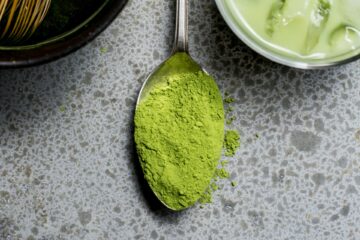We learned from elementary chemistry that water is a universal solvent; this means that many substances can dissolve in water. For example, salt is a compound we usually dissolve in water (to make saline solution) for various purposes, ranging from sinus rinse to wound cleaning. It dissolves completely in water to form a TRUE SOLUTION.
If you have dissolved salt in the water before, I bet you will also want to know if salt dissolves in oil and what happens when you put salt in your cooking oil. So here, you’ll read all you need to know about the solubility of salt in oil. So let’s proceed, shall we?
Does Salt Dissolve in Oil?
No, salt does not dissolve in oil. Salt is a polar solute that will only dissolve in polar solvents such as water. Therefore, if you pour salt into oil, it will only sink to the bottom of the oil, forming an immiscible mixture.
Why Does Salt Not Dissolve in Oil?
Oil and salt are composed of different types of molecules. The hydrocarbon molecules in oil, consisting of long chains of carbon and hydrogen linked to each other, are not charged – they are known as non-polar molecules.
On the other hand, salt is an ionic compound composed of positively charged sodium ions and negatively charged chloride ions (Na+ Cl-) known as polar molecules. Consequently, there is no charged attraction between the oil and salt molecules. Furthermore, salt being a polar solute and oil being a non-polar solvent makes the interaction between oil and salt impossible; hence, salt does not dissolve in oil.
Does Salt Dissolve in Butter?
Yes, salt dissolves in butter. However, in the real sense, salt dissolves in the water present in the butter. So, whether or not salt will dissolve in butter has to do with the butter’s water content. Generally, a stick of unsalted butter contains about 20 grams of water. The amount of salt that can dissolve in 20 grams of water is approximately 5 grams or one teaspoon. Therefore, a maximum of 5 grams or one teaspoon of salt will dissolve in a stick of unsalted butter.
Does Salt Dissolve in Olive Oil?
No, salt does not dissolve in olive oil. This is because olive oil, like other cooking oils, is composed of uncharged molecules that cannot attract the positively charged sodium ions and negatively charged chloride ions in salt. Hence, both substances remain immiscible when you try to mix them.
Does Salt Dissolve in Honey?
Yes, salt dissolves in honey because honey has about 17-20% water content, so the salt dissolves in the water present in honey. However, the solubility of salt in honey is much different from that of salt in pure water because honey contains many other solutes such as sugars, etc. This will affect the rate at which salt dissolves in it.
Does Salt Dissolve in Oil and Water Mixture?
Yes, salt will dissolve in the water component of a water-and-oil mixture but not in the oil. Since oil does not dissolve in water, they form a heterogeneous or immiscible mixture with the oil molecules floating on top of the water.
When you add salt to the mixture, the negatively charged chloride ions in the salt are attracted to the positive side of the water molecules. The positively charged sodium ions in the salt are attracted to the negative side of the water molecules. This process is known as solvation, and it results in what is called a homogenous or uniformly mixed solution.
Does Epsom Salt Dissolve in Oil?
No, Epsom salt does not dissolve in oil. Oil is a polar solvent, while Epsom salt is a non-polar solute, so they remain immiscible due to their differences.
Read also: Why Is Soy Sauce So Salty?
Does Rock Salt Dissolve in Oil?
No, rock salt does not dissolve in oil. As explained earlier, salt is an ionic compound composed of positively charged sodium ions and negatively charged chloride ions (Na+ Cl-) known as polar molecules, while oil molecules are not charged.
Consequently, there is no charged attraction between the oil and salt molecules, so rock salt does not dissolve in oil.
From what we have discussed in this article, we see that two substances with similar chemical properties interact more efficiently, unlike those with different chemical properties.
For example, salt dissolves in water because the positively charged molecules in the former attract the negatively charged molecules in the latter and vice versa.
On the other hand, salt does not dissolve in oil because the molecules in oil carry neither positive nor negative charge; that is, they are not charged. So, finally, I am sure that you now know the science behind salt not dissolving in oil but dissolving in water. But if you have any questions or need more clarification, please let us know.




